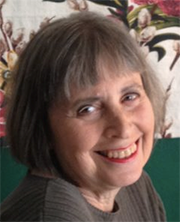The morning of the 2018 Boston Marathon started ominously: gusty winds, drenching rain, and temperatures in the thirties. Not the best weather for a race – or for me. It was the day I was discharged from Massachusetts General Hospital, several weeks after receiving CAR-T Cell therapy for CLL.
I had personally run many “marathons” myself. Since being diagnosed with CLL five years earlier, I had been through every available treatment: chemotherapy (not effective because I had 17p deletion), steroids (effective but not desirable long term), then ibrutinib as soon as it was approved by the FDA. I did well on ibrutinib for several years, and when I relapsed, was given venetoclax. While on venetoclax, I was asked to participate in a clinical trial for another drug. About a month into the trial, they took me off it. My red blood cell count had dropped so low that I needed several transfusions. After that, I started idelalisib (also not good, long term).
At that point, I was told about a CAR-T trial for CLL at Mass General. At first, I resisted. I didn’t want to be in the hospital for a month and I was afraid of radiation from numerous scans, etc.
After long discussions with doctors and family, as well as several people who had gone through CAR-T therapy successfully, I agreed to it– mostly because there really was no other option.
Once I made the decision, I felt relieved, even upbeat about it. On a warm February day, I went to Boston for the apheresis process (removing the T-cells from my blood). Six weeks later, I was admitted to the hospital and received my re-engineered T-cells. I was so happy to get them back, I sang a song for my husband, the doctor, and others in the room to the tune of “Hello Dolly”:
“Hello, T-cells, Well, hello T-cells, it’s so nice to have you back where you belong.
You’re looking swell, T-cells, I can tell, T-cells,
You’re still glowing, you’re still growing, you’re still going strong…”
I waited for symptoms, but aside from up and down fevers and fatigue, there was nothing dramatic. Two and a half weeks later, I was discharged. Rather than return to Connecticut, my husband and I decided to stay at a nearby hotel until my doctor’s appointment later in the week. Walking out of the hospital into that cold, windy, rainy day of the Boston Marathon, I didn’t realize that my own marathon with CAR-T wasn’t over yet. In fact, I would soon be heading into a storm far worse than the one outside.
Over the next few days in the hotel, I felt literally and figuratively under the weather. I couldn’t pinpoint exactly what was wrong, but I had trouble walking, and my handwriting in the daily journal I kept was becoming increasingly illegible.
The day of the doctor’s appointment was gray, windy, and cold. It was only a five-minute walk from the hotel to the outpatient office building, but I wasn’t up for it, so my husband and I took a cab. In the office, after my vitals were taken, the nurse asked me the same questions I had been quizzed on several times a day during my stay in the hospital: What’s my name? What’s the date? What city am I in? Who’s the president? I had always joked “Do I have to answer that one?” to the last question. Now, as I tried to answer the questions, I couldn’t form the right words and began speaking gibberish. After an emergency brain scan showed neurotoxicity, I was readmitted to the hospital.
My immune system had gone into overdrive – a cytokine storm of seizures and hallucinations. Thankfully, I don’t remember most of that lost weekend. Thankfully, the steroids I’d been given kicked in and calmed the storm. Thankfully, my doctor reported the good news: no evidence of CLL.
In a few days, I was discharged again; however, my marathon was not quite over. Back home, I became very moody – anxious or aggressive one minute, and depressed and crying the next. I called my doctor. He thought I was suffering from PTSD, which, no doubt, I was. “You’ve been to hell and back,” he said, and suggested I take an anti-depressant. I resisted. Meanwhile, my husband had been researching Keppra, the anti-seizure medication I had started in the hospital after the neurotoxicity, and he found that it can cause severe emotional distress. He even found a website where people posted their terrible side effects from the drug. I was switched to another anti-seizure medication, and my extreme symptoms disappeared.
I still needed to get over the trauma of the whole experience and decided to take the prescribed anti-depressant. It was a long physical and emotional recovery, and I did a lot of self-help therapies as well – walking, qigong, journal writing, meditating.
Now, more than two and a half years after CAR-T, it’s still difficult to relive some of it. Yet despite everything I went through, I’m forever grateful. I received the best care from the doctors and medical staff at MGH, and the deepest love from my husband and family. Without them, I couldn’t have won my Boston marathon.
Michele Palmer, a writer and curator, lives in Storrs, Connecticut. Under the name Malka Penn, she’s written three children’s books, and is currently working on an adult mystery. She also established the Malka Penn Award for Human Rights in Children’s Literature, given annually by Dodd Human Rights Impact at UConn. Among her interests are gardening, genealogy, and vintage fabrics.


















